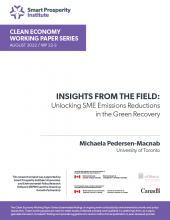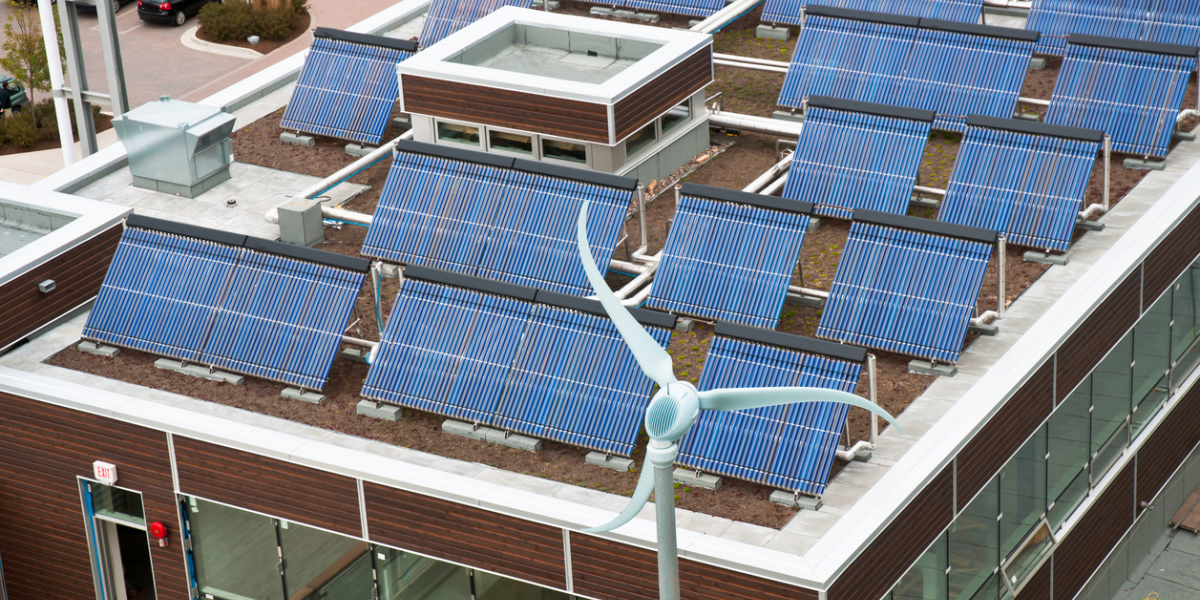Significant changes in the private sector must occur for Canada to meet the federal government’s emissions reduction target to become net zero by 2050. Decarbonization will be particularly critical among small and medium sized businesses (SMEs)—meaning those with less than 500 employees—as these firms make up 98% of the Canadian economy and employ over 70% of the Canadian labour force. Yet SMEs are largely left out from federal and provincial support, programming, and policymaking. In recognition of this governance gap, there has been a “Cambrian explosion” of non-governmental initiatives aimed at supporting decarbonization in the private sector.
However, scaling up non-governmental decarbonization interventions is hard. Many such voluntary initiatives have struggled to grow beyond their first few years of operation. This study explores the barriers to scaling these initiatives. In-depth interviews were conducted with 7 municipal policymakers, 4 federal policy makers, and 18 current and former NGO staff members who all have direct experience supporting sustainability capacity building among SMEs.
The study identifies three paths that organizations like GEC can follow to continue to scale: first, they can strategically partner with supportive municipal governments to establish programs that serve the interests of the municipality. Second, voluntary programs can grow their operations geographically by developing a supportive and symbiotic relationship with a national (or potentially regional) government. Third, these organizations may grow the scope of their mandate (mission-drift) by focussing on a larger number of environmental issues to increase their access to government grants. Notably, in all three cases, the result is that these nongovernmental organization become increasingly reliant on governments. Thus, this study finds that the state and its policies remain a crucially important factor for the prospects of scaling up voluntary capacity-building initiatives aimed at climate action.
An accompanying policy brief offers policy suggestions and insights from the field about how governments could effectively engage and support SMEs to plan and implement robust climate action in the post-pandemic green recovery.
READ THE WORKING PAPER: Insights from the Field: Unlocking SME Emissions in the Green Recovery
Suggested Citation: Pedersen-Macnab, Michaela. Insights from the Field: Unlocking SME Emissions in the Green Recovery (September 2022). Available at the Smart Prosperity Institute Clean Economy Working Paper Series: https://institute.smartprosperity.ca/publications/SME-decarbonization
READ THE POLICY BRIEF
The Clean Economy Working Paper Series disseminates findings of ongoing environmental and clean economy work conducted by researchers from a range of disciplines. These working papers are meant to make results of relevant scholarly work available in a preliminary form. Although these papers have not undergone a peer-review process, they meet general standards of scholarly excellence. The views expressed in these working papers are those of the authors and do not necessarily reflect the opinions of Smart Prosperity Institute.



